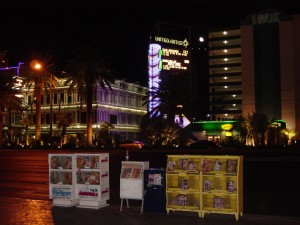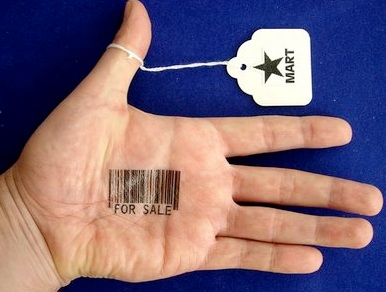Backpage.com has been on the hot seat for months as policy makers, faith leaders, and advocates have intensified their efforts to hold the online advertising site, owned by Village Voice Media, accountable for its documented facilitation of child sex trafficking through online advertisement. Online facilitators have largely avoided liability as serious crackdowns on sex trafficking have hit the nation; however, today Washington state is taking a lead in the effort to combat online facilitation of commercial sexual abuse of children.
Today, Shared Hope International President and Founder Congresswoman Linda Smith will testify before Washington legislators on SB 6251 introduced by Senator Jeanne Kohl-Welles (D-WA), which would create criminal liability for media that allow advertisements of commercial sexual abuse of a minor, including prostitution, pornography and sexual performance. Together with Auburn Seminary’s Reverend John Vaughn, a leader in convening clergy to urge Village Voice Media to close its “adult services” section, Linda will advocate for this law that would deter child sex trafficking. Click here to watch the hearing live today at 1:30pm PST.
The Washington bill is a bold move in bringing accountability to –a growing venue for child sex trafficking. In a recent New York Times article, Nicholas Kristof cites a Brooklyn prosecutor’s claim that a majority of cases include girls aged 12 to 25 marketed through Backpage.com. According to an independent study by Advanced Interactive Media Group, Backpage.com’s “adult services” section is expected to earn Village Voice Media $24.8 million, accounting for over two thirds of the $36 million in revenue projected to be earned by all tracked online classified ads facilitating commercial sex.
Shared Hope International is leading a national campaign inviting mayors across the nation to join our efforts to encourage Village Voice Media to stop illegal forms of commercial sex advertisements on Backpage.com. Additionally, 51 state attorneys general, 53 anti-trafficking experts and organizations, and nearly 500 faith leaders from multiple denominations have publically called on Backpage.com to remove the “adult services” section. Yet the “adult services” section remains active on Backpage.com. Our fight will not end until the online advertisement of children for sex does.
Shared Hope International will continue to support efforts to combat the facilitation, sale, or purchase of a child for sex. We aim to hold states accountable through the Protected Innocence Initiative which grades each state on its level of protection against domestic minor sex trafficking. States must have adequate laws to effectively prosecute offenders, protect children, and accurately identify and track the crime. We offer advocacy resource tools including state Report Cards, an analysis of each state’s laws as it relates to or impacts domestic minor sex trafficking, policy recommendations for each state highlighting gaps in state law and offering solutions , and user-friendly issue briefs on key legal components to provide an understand and examples of the legal provision.
 Recognizing the critical role facilitators play in the exploitation of children, some hotels and airlines have taken it upon themselves to no longer act as facilitators in the child sex trade. Here are some of the positive steps hotels and airlines have taken in order to stop child sex trafficking.
Recognizing the critical role facilitators play in the exploitation of children, some hotels and airlines have taken it upon themselves to no longer act as facilitators in the child sex trade. Here are some of the positive steps hotels and airlines have taken in order to stop child sex trafficking. d distributing child pornography should carry high penalties. State’s laws are analyzed and graded to ensure that convicted traffickers must register as sex offenders and parental rights should be terminated for convicted sex traffickers.
d distributing child pornography should carry high penalties. State’s laws are analyzed and graded to ensure that convicted traffickers must register as sex offenders and parental rights should be terminated for convicted sex traffickers. Operation Precious Cargo
Operation Precious Cargo Stories like Kelly’s have become all too common in today’s society. Through the Protected Innocence Initiative, Shared Hope International seeks to help victims like Kelly by making sure the laws properly criminalize domestic minor sex trafficking.
Stories like Kelly’s have become all too common in today’s society. Through the Protected Innocence Initiative, Shared Hope International seeks to help victims like Kelly by making sure the laws properly criminalize domestic minor sex trafficking.





